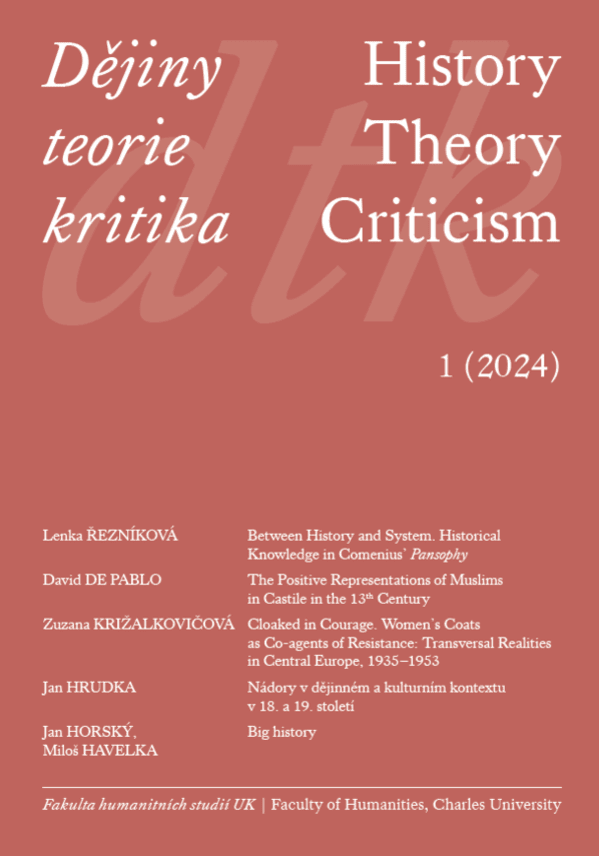Mezi historií a systémem. Historické vědění v Komenského Pansofii
Between History and System. Historical Knowledge in Comenius’ Pansophy
Author(s): Lenka ŘezníkováSubject(s): History, Modern Age, 17th Century
Published by: Univerzita Karlova v Praze - Fakulta humanitních studií
Keywords: J. A. Comenius; Pansophia; knowledge; systematisation; early modern period
Summary/Abstract: By analysing Johannes Amos Comenius’ Pansophy, this study shows how Comenius squared his idea of a system with his strong sense of history. It discusses how his systematic and historical approaches interact. The monumental, long-standing project of Pansophia, originating in the 1630s, was supposed to provide a wide range of information and cover all important subjects. Although Comenius studied history from early in his academic career, wrote several history treatises, and considered history the most beautiful part of knowledge, he seems to have failed to include it in his ambitious pansophical work. History does not seem to play a part in this most comprehensive of oeuvres. To fulfil his aspiring program of universal knowledge, Comenius did not feel obliged to tell the history of the world, respective countries, or the church. The striking absence of history makes Comenius’ pansophical enterprise significantly different from his earlier encyclopaedic project, Theatrum universitatis rerum, which included several books covering both civil and church history. The lack of such a prominent field of scholarship might be surprising in a book designed to summarise the entire knowledge available at the time. Seeking an explanation for such a remarkable omission, this study argues that excluding history was intentional, based on two significant changes in the author’s intellectual predilections. The first was related to the very concept of history, its nature and function. The second was linked to the issue of early modern knowledge organization. While structuring knowledge, Comenius did not omit history, but he abandoned the concept of disciplines in general. In the reconstructed systematisation, the topics concerning time, history and historicity stepped out of traditional historical genres. They are scattered throughout the book in more or less inconspicuous passages, hidden in many specific, non-narrative manifestations. These changes are to be attributed to the highly discussed questions regarding the optimal knowledge system in seventeenth-century scholarly discourse.
Journal: Dějiny - Teorie - Kritika
- Issue Year: 2024
- Issue No: 01
- Page Range: 9-30
- Page Count: 22
- Language: English

